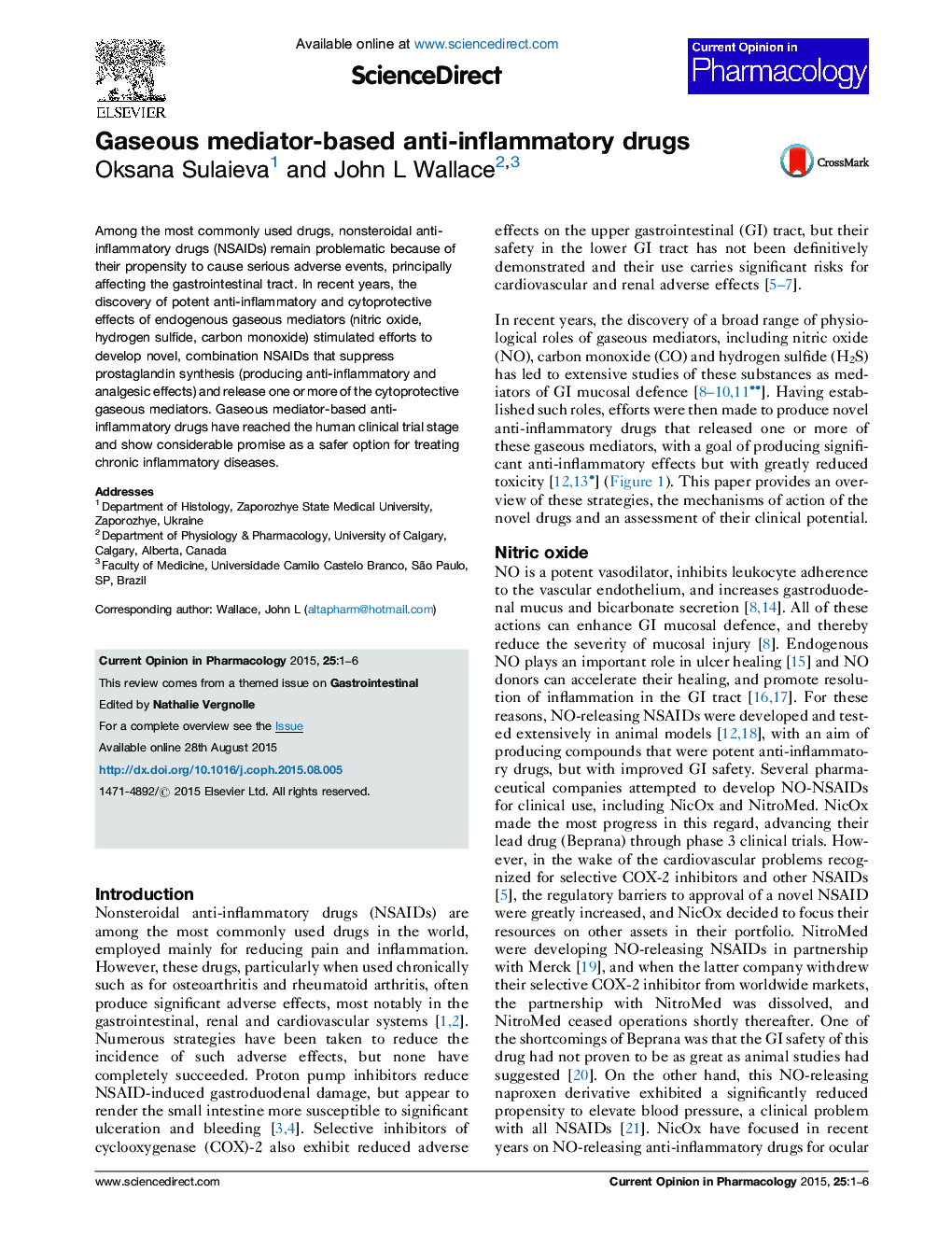| Article ID | Journal | Published Year | Pages | File Type |
|---|---|---|---|---|
| 2529739 | Current Opinion in Pharmacology | 2015 | 6 Pages |
•There are significant adverse effects associated with use of current anti-inflammatory drugs.•Key endogenous gaseous mediators are nitric oxide, hydrogen sulfide and carbon monoxide.•The gaseous mediators can reduce ischemia, inflammation and pain, and promote tissue repair.•Gaseous mediator-releasing anti-inflammatory drugs show considerable promise.
Among the most commonly used drugs, nonsteroidal anti-inflammatory drugs (NSAIDs) remain problematic because of their propensity to cause serious adverse events, principally affecting the gastrointestinal tract. In recent years, the discovery of potent anti-inflammatory and cytoprotective effects of endogenous gaseous mediators (nitric oxide, hydrogen sulfide, carbon monoxide) stimulated efforts to develop novel, combination NSAIDs that suppress prostaglandin synthesis (producing anti-inflammatory and analgesic effects) and release one or more of the cytoprotective gaseous mediators. Gaseous mediator-based anti-inflammatory drugs have reached the human clinical trial stage and show considerable promise as a safer option for treating chronic inflammatory diseases.
